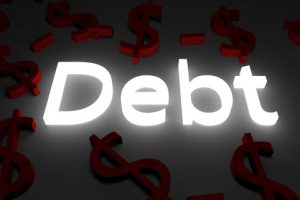Five Dischargeable Debts in Illinois

Financial storms, like job loss and divorce, hit almost every family from time to time. Many households do not have the resources to deal with these events. In fact, according to a 2016 survey, over two-thirds of Americans have less than $1,000 in savings. So, many families neglect unsecured debt payments, or borrow more than they can afford to repay, to get through a temporary crisis.
That approach may seem like a good idea at the time, but these responses often create a snowball effect which ravages the family finances.
As the snowball picks up steam and size, it robs families of control over their finances. Bankruptcy is a good way to get that control back. In fact, in many cases, it may be the only way. Chapter 7 eliminates unsecured debts like the ones listed below, which reverses this entire downward spiral.
Medical Bills
After several years of low or moderate growth, medical bill inflation is on the rise again. So, these expenses are more difficult to pay. Even if the debtor has health insurance, these policies usually only cover most of these costs. 20 percent of a $10,000 monthly cancer bill is a lot of money.
Moreover, many doctors turn unpaid debts over to debt-buyers after only two or three months. These aggressive debt collectors often use semi-legal collection tactics.
Bankruptcy gives you control over medical debt. If the debtor wants to pay the bill and retain the relationship with the doctor, that’s possible to do. On the other hand, if the debtor wants to let the court discharge the debt, that’s an option as well.
Student Loans
Like medical bills, student loans are unsecured debts. The borrower simply makes a written promise to repay the loan. But unlike medical bills, student loans are only dischargeable in limited circumstances. The Seventh Circuit, which includes both Illinois and Indiana, still adheres to the strict Brunner rule in this area. Student loans are only dischargeable if:
- – The borrower made a good-faith effort to pay the loan,
- – Loan repayment would drive the family below the poverty line, and
- – The hardship is either permanent or will last for many years.
Because this test is so harsh, many debtors do not even try to have their student loans discharged in bankruptcy. That’s unfortunate, because statistically, most of the people who ask receive at least a partial discharge.
Credit Cards
With interest rates averaging about 20 percent, credit card debt can quickly wreck a family’s budget.
Fortunately, credit card debt is one of the easiest debts to discharge in bankruptcy. Most debtors have no interest in continuing to borrow money, so the relationship issues that often arise with medical bills do not come into play here.
Back Taxes
For bankruptcy purposes, back taxes are a lot like student loans. Both are unsecured debts, and both are only dischargeable in certain circumstances. The tax discharge rules are:
- – Only past-due income tax is dischargeable,
- – The tax must be at least three years old,
- – Applicable returns must have been on file for at least two years, and
- – The IRS or other taxing authority must not have assessed the debt in the last eight months.
Discharge eliminates the legal obligation to repay the debt, but it does not eliminate the debt itself. So, in this context, if the taxing authority filed a lien, even if the taxpayer receives a discharge, the lien remains in place.
Payday Loans
Interest on payday loans is even higher than credit card interest. Despite what payday lenders may say, payday loans are unsecured debts which are dischargeable in a Chapter 7.
Furthermore, the Automatic Stay should block any scheduled automatic payments. Nevertheless, it may be a good idea to talk to your bankruptcy lawyer about closing any accounts connected to a payday loan.
Connect with Dedicated Lawyers
Most unsecured debts are fully dischargeable in bankruptcy. For a free consultation with an experienced Chicago Chapter 7 bankruptcy attorney, contact the Bentz Holguin Law Firm, LLC. Convenient payment plans are available.
Resource:
gobankingrates.com/saving-money/savings-advice/half-americans-less-savings-2017/?utm_campaign=821369&utm_source=yahoo.com&utm_content=1


